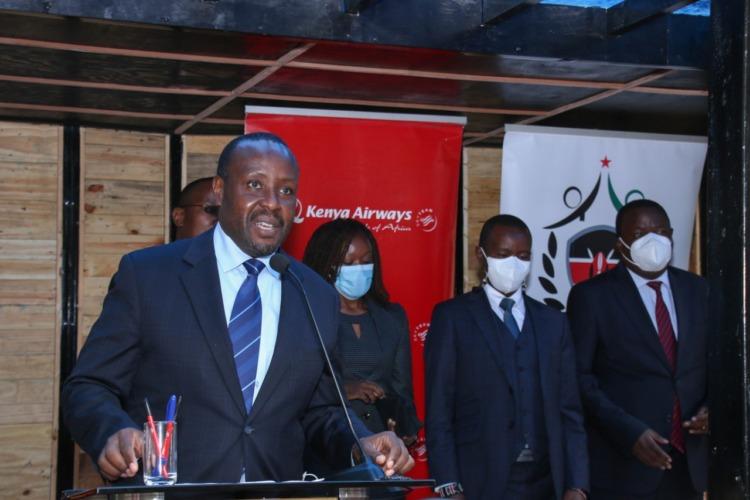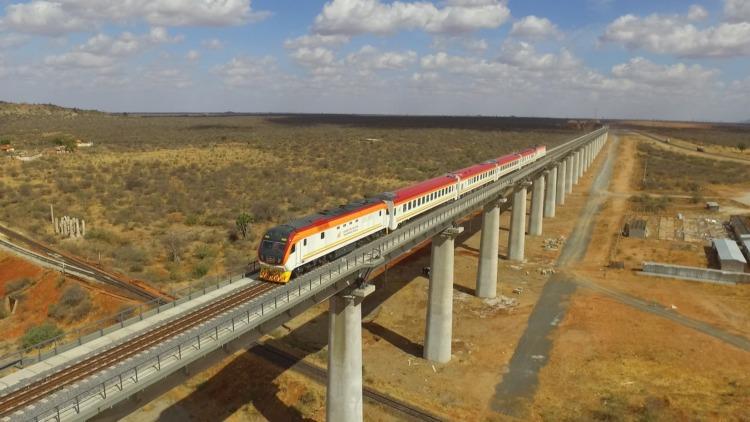Kenya’s national carrier Kenya Airways has launched a centre which it says will be used to mentor the youth.
In a statement, the company says the centre, dubbed ‘Fahari Innovation Hub’, will act as a springboard for new ideas and data-driven innovations to accelerate impact-driven solutions that address some of the societal and business challenges.
Kenya Airways Chief Executive Officer, Allan Kilavuka said the Fahari Innovation Hub has already been operating virtually for about one year.
He added that with the setting of a physical workspace, the hub will provide a centre for strategic innovation management offering opportunities for co-creation, collaboration, networking, research, and learning.
“At the pace at which change accelerates, especially now in the middle of a global pandemic, we have become increasingly aware of the need to be innovative as we position the business as a resilient, forward-looking and sustainable company with a deliberate inclusive agenda of empowering, partnering and co-creating with the society around us,” he said.
“Enabling an environment that will accelerate innovative ideas, knowledge exchange and impact business operations brought together various think-tanks, industry leaders, innovators and entrepreneurs exemplifies our spirit to charge forward as we seek to innovatively find solutions that address some of our business problems and pain points,” he added.
The new innovation hub is part of its strategy in contributing to the sustainable development of Africa by empowering, partnering, and co-creating innovative ideas and strategies with local start-ups and the small-medium enterprises (SMEs) ecosystem.
Speaking during the launch the Cabinet Secretary, Ministry of ICT, Innovation and Youth Affairs Joseph Mucheru said there is need to invent new ways for the future and especially for the Kenyan Youth to be able to respond as flexibly as possible to changing times and diverse opportunities.

“We commend Kenya Airways for partnering with National Youth Council and GE and leveraging and harnessing Youth potential to design the Fahari Innovation Hub in fast-tracking the country’s mission to use new, digital & environmental friendly business models beyond flying to shape our tomorrow,” he said.
“Through the hub we hope to see provision of upskilling, employment opportunities, community growth as well as support to local universities, enterprises and SMEs as we contribute to the sustainable development of Africa.”
Last week, the Fahari Innovation Hub curated a virtual workshop for entrepreneurs dubbed the ‘KQ Aviation 101 Workshop’ where the Fahari Innovation Challenge was launched.
The workshop served to apprise start-ups and SMEs on the opportunities available to access markets within the entire value chain of the aviation sector which includes airports, the food industry, tourism, and digitization including Boeing Horizon X, IATA, Kenya Tourism Board, Nas Airport Services, General Electric, Hivos East Africa, and Funkidz Limited.
SMEs and Startups in Numbers
Official data indicates that Small and Medium Enterprises contribute approximately 40 percent of Kenya’s GDP, with the majority falling in the informal sector.
Data from 2016 by Kenya National Bureau of Statistics estimated that there were about 1.56 million MSMEs licensed by the 47 county governments, and 5.85 million unlicensed businesses, making for a total of 7.41 million micro, small and medium businesses.
Kenya Association of Manufacturers on its part says there are about 7.41 million MSMEs in Kenya with only 1.56 million being, licensed whereas 5.85 million are unlicensed.
“The high number of unlicensed SMEs is indicative that the time is ripe to create a conducive space for SMEs to be productive and profitable at local and regional levels,” the Association notes.
Meanwhile, World Bank report on High Growth Firms reveals that 50 percent of all new jobs in Kenya are estimated to come from medium and large companies.
A 2017 survey however indicates that 70 percent of Small-to-Medium sized enterprises fail within their first three years of existence.
Respondents identified the main barriers to success as high taxes, too much government regulation and corruption in municipal government.
Such an innovation hub will therefore be critical in helping SMEs and startups learn how to grow and sustain their businesses.











